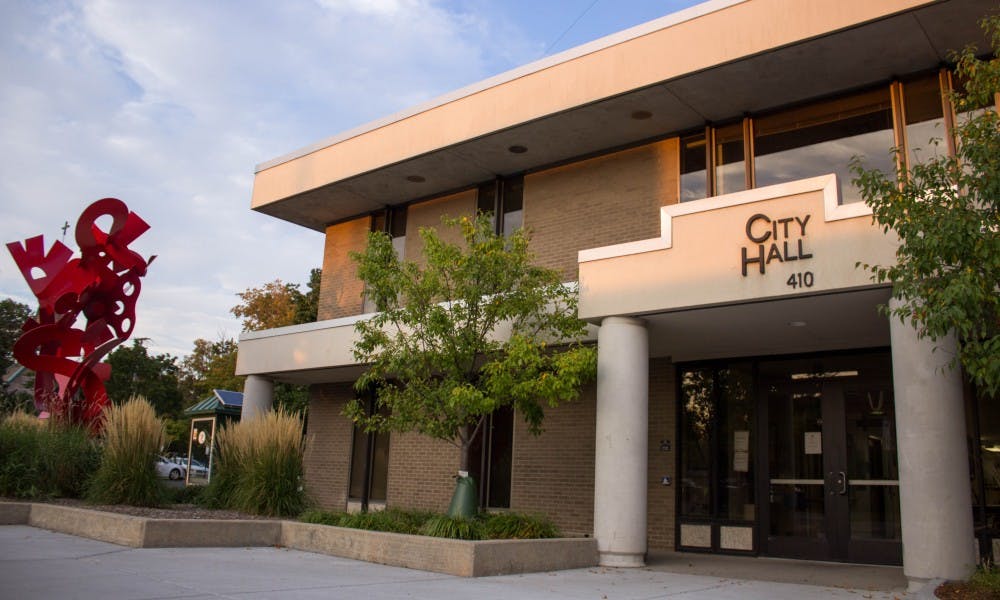While drafting the income tax proposal that aims to raise revenue for the City of East Lansing, an exemption was passed that applies to those making $5,000 or less per year.
This number was chosen because the average MSU student makes $4,000 or less a year, Mayor Mark Meadows said previously.
However, according to Ashley Fuente, president of the Council of Graduate Students, many graduate students will still pay the tax.
“This is going to affect all of us because all of us who are employed by the university make more than $5,000,” Fuente said. “So from the perspective of a graduate student, this is frustrating because we don’t know where this money is going to go.”
Though many graduate students live in East Lansing, where they would have to pay the one percent tax rate, those living in Lansing would still have to pay half of that.
“Because they don't live in the city of East Lansing, the tax dollars that are going to be used to improve services in East Lansing they’re not going to benefit from because they live in Lansing," Fuente said. "This money is being distributed into East Lansing resources, so this where the taxation without representation comes in.”
Those employed by the university make an average of $15,000 or less per year. Graduate students are more likely to be supporting spouses or families and most live in the city throughout the year, setting them apart from undergraduates who wouldn’t have to pay the tax, Fuente said.
“I think that everybody is gearing things towards undergraduates,” Fuente said. “There’s a lot more undergraduates than there are grad students, but we make up a really important and vital part of this community as well.”
But according to Mayor Pro Tem Ruth Beier, it’s not about whether or not undergraduates or graduates would have to pay the tax. The city worked to determine the highest amount possible and are limited to what they can exempt.
“The city income tax that we’re using, the only one available in Michigan, is under the Uniform City Income Tax Act which is a state law,” Beier said. “And the uniform part of it means we can’t just do what we want.”
The city could not allow deductions for graduate school tuitions or fellowships, even though the city recognizes a lot of graduate students' income is in the form of a stipend or paid tuition.
“It’s too bad we can’t exempt fellowships and things like that, but the state just doesn’t allow us to do that,” Beier said.
Increasing the exemption to $10,000 or $15,000, a number that would then apply to graduate students, wouldn’t raise enough revenue for the city.
“It doesn’t matter what kind of students you are or whether or not you’re a student at all,” Beier said. “All we can say is if you make less than a certain amount of money, you don’t pay any taxes. We just had the exception that applies to everybody, whether they’re a grad student or an undergrad.”
Meadows and MSU President Lou Anna K. Simon attempted to negotiate a deal that would take the tax off the ballot, but a compromise could not be reached.
“It’s going to be a burden,” Beier said. “And I wish we didn’t have to raise taxes. ... The university had a chance to avoid the whole problem, and the board of trustees just chose not to do that.”
Support student media!
Please consider donating to The State News and help fund the future of journalism.
Discussion
Share and discuss “COGS president raises concerns about income tax's impact on graduate students” on social media.







